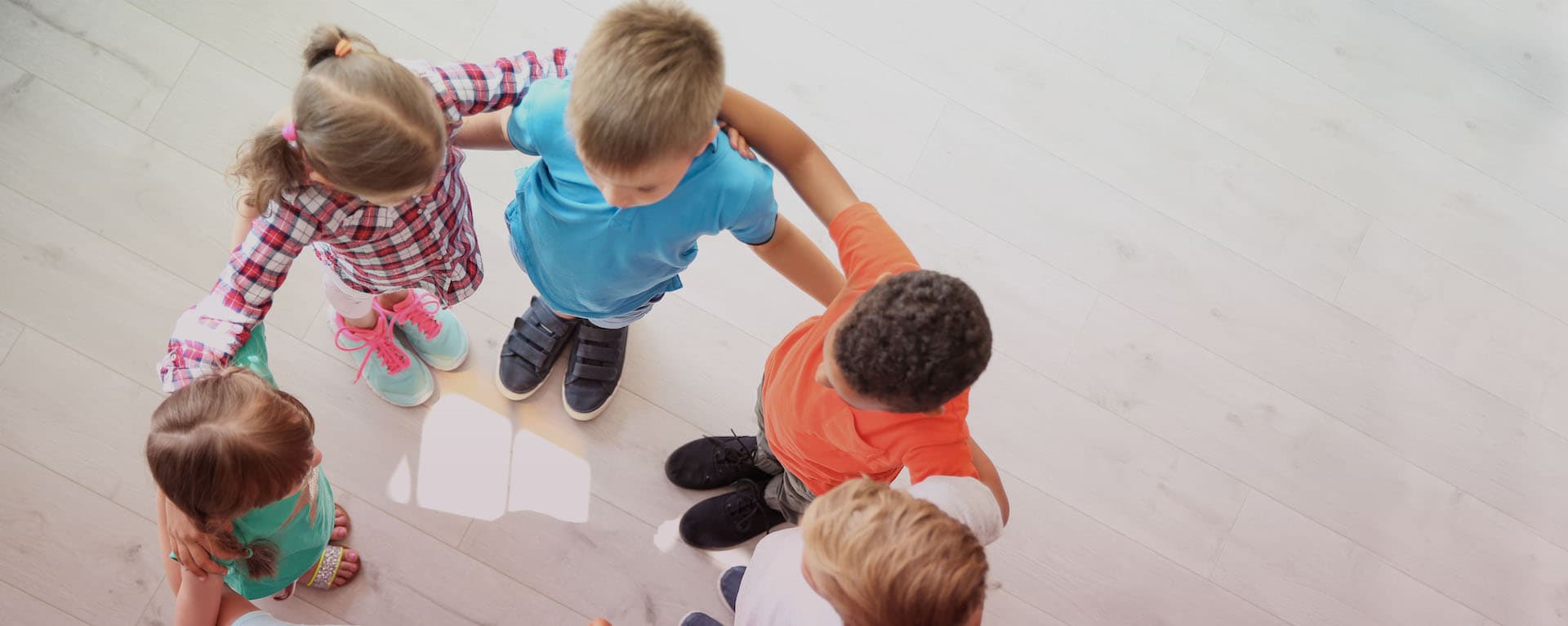The Early Years Philosophy
Early Childhood is the foundation on which children build the rest of their lives. At Villa Grimani International School we believe the early years of a child’s learning experience are crucial to his/her educational development. We aim to provide a positive, caring, enjoyable, active and stimulating environment in which children can feel secure and confident from day one. Through methods of play, exploration and experimentation we provide rich experiences which support, stimulate and structure a child’s learning and which aim to bring out a progression of understanding appropriate to the individual needs and abilities of every child. Opportunities for interaction with a wide range of physical and social contexts are available to all children in order to provide a stimulating and structured environment.
Together with parents’ support we aim to play a fundamental role in encouraging and directing the children in the development of skills, knowledge and the acquisition of new concepts, with an emphasis on the English language.
Principles which are fundamental to good early years practice
- Early childhood is the foundation on which children build the rest of their lives; it is not just a preparation for the next stage – it is vitally important in itself.
- Children develop emotionally, intellectually, morally, physically, spiritually and socially, and at different rates. All aspects of development are equally important and are interwoven.
- Young children learn from everything that happens to them and do not separate their learning into subjects.
- Children learn most effectively by doing rather than being told.
- Children learn most effectively when they are actively involved and interested.
- Children need time and space to produce work of quality and depth.
- What children can do rather than what they cannot do are the starting points in their learning.
- Playing and talking are the main ways through which young children learn about themselves and the world around them.
- Children who feel confident in themselves and their own ability have a head –start to learning.
- Children who are encouraged to think for themselves are more likely to act independently.
- All children have abilities which should be identified and promoted.
- The relationships which children establish with adults and other children are of central importance in their development.
- Children who have clear boundaries and rules feel safe and secure in their environment.
- Children learn rules when they receive appropriate and consistent consequences to their behaviour.

How to apply
It is possible to enrol your child at Villa Grimani at any point during the academic year providing there are spaces available. Children are accepted from Italian, foreign and international schools. They may be asked to sit an entry test and meet with staff on a few occasions to gage their level of English and to decide in which class they should be placed. Children entering with little or no English are given individual support from our support teachers in and out of the classroom.